Book Reviews by Genre: Horror
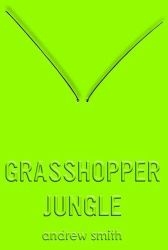
This book was weird.
It felt like a windstorm of ideas blowing in my face; a mad prophet's ravings before catastrophe, and a tangled mess of actions and consequences - but somehow they all connected together? It was a bit of an experience.
Grasshopper Jungle is a story about the end of the world, but like many teen novels, it is simply a backdrop to Austin's personal dramas. One of its tags on Libby is "humor" but I think it's more of a tragedy if anything. The main character and his best friend inadvertently bring about an apocalypse by way of 6-foot tall, ravenous grasshoppers after accidentally breaking a jar they really shouldn't have broken.
The book weaves together the stories of Austin, his childhood experiences, as well as those of his brother, Polish ancestor, the mutant grasshoppers, and random strangers around town (such as his principal, his friend's mom's boyfriend, and a vulgar policeman being memorable ones). It's a lot.
I found this story's distinctive style very difficult to tear myself away from. It was authentic to the protagonist's personality, and it reminded me of the narration of classic epics. It stands out in its themes of memory, religious trauma, sexuality, and identity (and somehow being an apocalyptic story as well). The symbolism was uncanny, and the way the outside world and past timelines mirrored Austin's mental state was very artistic and unique.
Onto my criticisms and confusions: #1 has to be the male characters. I think that every single male character in this story thinks constantly about every other character in a grossly objectifying way. Honestly though, this applies to most of the female characters as well, who are just as lustfully self-interested. Very interesting, but it was a... strange experience to read the nuanced and morally grey portrayal of Austin's ancestor, a gay man who had not-consensual relations with a woman to see if he could "love" anyone other than his dead Communist lover.
Austin himself relates to this ancestor because he, too, is "confused". His gay best friend Robby continually makes advances on Austin, and Austin reciprocates because he is completely in love with Robby. He is also in love with his girlfriend, who doesn't take too kindly to the fact that Austin has kissed Robby during their relationship. Austin even documents the POV of the murderous, bi-curious, mutant grasshoppers.
The ending was extremely abrupt. I'll admit, I was glued to this book for the last quarter, and the ending made me stand up and think "what in the world did I just read". However, in all honesty, it very much suited the style of the book. It never deviates from being a chronicle of the end of the world, and the world around Austin certainly comes crashing down.
Grasshopper Jungle is a weird book that made me think, and I don't regret reading it. It is quite graphic, but if you're interested in this swarm of a book, I highly recommend reading it and forming your own opinion. I might read the sequel, but I'm a bit afraid of what it might hold.
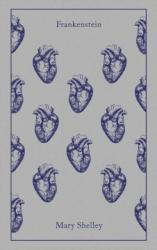
I really enjoyed reading this book! Mary Shelley's 'Frankenstein' is a classic novel that everyone knows. It's a tale about Victor Frankenstein, a scientist, and how he creates life. Except it's made from body parts. What I liked about reading this is that this is the original. Young readers don't really know about all the other complex parts of the story. It was so interesting to read and learn about a narrative I never knew before. More on the plot, it's about how Victor creates a creature and then the seemingly endless and terrifying consequences.
However, this book is incredibly hard to read. The old way it's written makes it easier to get lost or not completely understand what happened. There's a lot of words I had to look up, but the context also helps decipher it. One of my favorite parts of the book is the building suspense. Ultimately, I think this book has so much beauty, because of all the emotions I had while reading it and the message it carries about human nature.
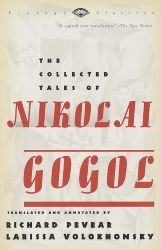
The Portrait by Nikolai Gogol is one of his best short stories centering around a penniless artist, Chartkov, struggling to make his name in the art world and finds himself entranced by a portrait he buys at a merchant shop. With a steely face, build of a giant, and eyes that seem to pierce the soul, the portrait that he buys on an impulse at a run-down shop carries a mystery with it that haunts Chartkov both in his waking hours and in his sleep. As he is overcome by his financial difficulty, the strange portrait that he stashed away for fear of its gaze changes his life forever. With flowing imagery and an intrinsic description of human nature and its afflictions, The Portrait latches onto the reader’s heart and presents them with a fascinating account of Chartkov and his peculiar encounter with the portrait with uncanny realism and blended fantasy.
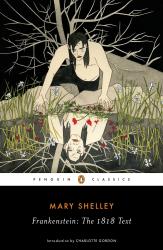
Frankenstein is a classic novel that recollects the events after Victor Frankenstein, a knowledgeable and curious scientist, gives life to a haunting creature. As soon as this monster opens its eyes, Victor becomes filled with regret. Although the monster fled from Victor's apartment, it wasn't the last time they would interact. Readers witness Frankenstein's sickening and terrifying journey as he searches for his monster. I believe this novel did an amazing job of expressing the valid feelings of the monster while also displaying Victor's feelings and emotions. Some chapters in the story tend to drag and there are events that Mary could have elaborated on to provide readers a clearer image of each occurrence. But overall, this was a unique approach to expressing themes of isolation, vanity, cruelty, and fear.
Reviewer: Grade 12
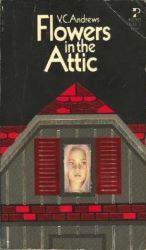
Flowers in the Attic is about the horrible life of four siblings. Before their lives were turned upside down, their father provided for them, but when he died, the mother decided to take herself and four children to her parents house. The mother was exiled by her parents for her marriage to her husband, so going to her parents for help was her last resort. When arriving at her parents house, the mother decides to hide away her children to gain back her dying fathers favor to inherit his fortune. Until the grandfather dies, the four children will be locked away in the attic and hidden from the world. This story is told through the oldest daughter Cathy’s perspective, and follows her journey with her three other siblings while living in their grandparents' attic. This was a very depressing and disturbing book with a lot of twists and turns nobody would have seen coming. If you like sad stories that do not leave your mind easily, this is the perfect book for you! Personally, I do not recommend this book if you are not prepared for a very disturbing story.
Reviewer Grade: 11
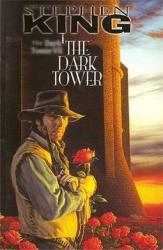
For a series that spanned over two decades, it’s nice to see that The Dark Tower ends on a titular high note. Other series may lose steam or fade to mediocrity as the stories to tell become less interesting. Or the author dies. While this series narrowly avoided this fate, the meta subplots in the last few books were well out of the way for the grand finale that is The Dark Tower. I’m almost disappointed that more of the books in the series weren’t like this, since there were actual stakes involved.
I don’t normally think of Stephen King as an “action” writer, but the fight sequences in this book were absolutely superb. These enemies had the “final boss” gravitas that made the battles so entertaining to read. That there was an incredible new superpower introduced in this book makes me wish we had more stories about that character since it was such a great ability. It’s always a mark of a great ending that I almost want to keep reading to see what else happens in this world—even with all the loose ends tied up.
King definitely understood that he was never going to write the most satisfying ending for the Roland saga since it had built up for 20+ years. His solution was a great way to both leave it as the best ending we’d ever imagine while also providing a satisfactory conclusion to the Gunslinger finally arriving at the Dark Tower. That there were as many happy endings in this book as there were made the experience of saying goodbye that much more bittersweet. The Dark Tower isn’t a perfect series, but it’s solid from start to glorious finish.
The best ending that the Dark Tower series could ask for, I give The Dark Tower 5.0 stars out of 5.
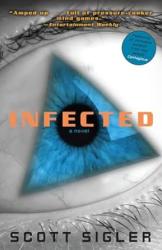
Stephen King has written most of the horror I’ve read. In deciding to branch out from the master of the genre, I saw the cover for this book in the listing of audiobooks for my library’s reader app and thought it looked interesting. While the horror here was more body/gross-out horror—which I didn’t have any issue with—there are other, deeper problems with this book. I’ll grant that in terms of audiobooks, it was an interesting recording with the sound effects and “alien voice” bits. However, I can’t say I recommend this book based on those merits alone.
Perhaps this is an artifact of the times, but a book that came out in 2008 has not aged well at all. First, is the abundance of “men writing women” tropes that not only minimize the female characters to minor roles but doesn’t consider that perhaps not everything has to be about sex. Furthermore, while the main character was a person of color, there were a lot of negative stereotypes and mildly hidden racism that came through. Reading this book made it feel like I had gotten inside the head of a “bro” guy, and it was pretty cringe.
I think the biggest problem was that this book was too cavalier with its “gross-out” factor without having enough suspense to justify the constant violence. When I didn’t care about any of the characters and the vignettes that split off to explore one-shot characters didn’t give me enough time to be empathetic for them, then who cares about the violence that happens to them? More often than not, the pacing felt so slow that I had to check how much time was left, hoping that at some point it would go faster.
A horror story that was scary for reasons other than its violence, I give Infected 2.0 stars out of 5.
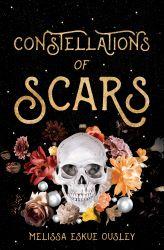
This is definitely an eventful book. "Constellations of Scars" follows Amelia Weaver. For unexplained reasons, she grows pearls on her skin every month. Her mother keeps her shut inside the house, restricting her freedom. One day she decides to escape and try her hand at the real world. She ends up working for a freak show, though they are unaware of her own oddity.
Let's start with the characters. Amelia herself is perfectly acceptable. She doesn't have any noteworthy character traits, or anything to help her stand out besides the whole pearl thing. However, her motivation is clearly defined and all of her choices make sense. Gabe is probably the best character in the book. His backstory is interesting, and his somewhat reclusive demeanor is off putting without being unlikeable. Unfortunately, most of his character development happens within ten pages. Peter is... interesting. I'll talk about him in the spoilers section.
The best part about this book is the writing. It keeps the reader engaged the whole way through. While the descriptions are detailed, the author does not dwell on them long enough to bore the reader. One interesting thing about this book is the chapter length. While there are long chapters, there are also chapters that only last a few pages. I found that this kept the story at a fast pace, further keeping me involved.
The plot is the main failing of the book. Spoilers from here on out. It starts off strong, setting up themes of isolation and hiding. Several conflicts were set up, most notably Amelia's mother and the possibility of the world finding out about her secret. However, all of these conflicts are suddenly solved halfway through the book. From that point on, it shifts to a thriller about Peter secretly being a serial killer. I'm not kidding. There are hints that Peter isn't as nice as he appears, so it doesn't come out of nowhere. However, it drastically shifts the course of the story, to the point where it feels like two separate stories.
Despite this criticism, this wasn't a bad book. I enjoyed myself while reading it. Furthermore, it's a quick read (perfect for car trips or bedtime). If you're looking for an engaging story with twists and turns, this is for you. If you're looking for a cohesive story with interesting themes, this book isn't for you.
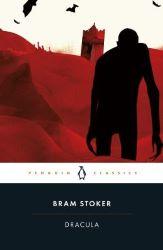
Dracula, written by Bram Stoker, is a fictional account of a vampire hunt in Transylvania. Jonathan Harker, a lawyer, is sent by his boss to Castle Dracula to assist in a real estate transaction with a wealthy man named Count Dracula. However, he is soon not allowed out of the castle, and slowly he realizes the the Count is no ordinary man. Harker manages to escape and eventually teams up with a colleague to hunt down Count Dracula. I enjoyed the book, it was full of complex back stories that merged into one beautiful crescendo: the hunt of the Count. I would recommend this book to anyone wanting to expand their vocabulary, as the book is rich with complex words and sentences. I would also recommend this book to avid readers; (as it is a classic) it should be ensured that to be a genuine reader one must read this famous work of art.
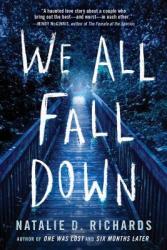
Romance, thriller, and horror all wrapped into one. Natalie D Richards does it once a great with a book you won't be able to put down until the final page. When two best friends in love have a falling out over a fight at a party it seems nothing could bring them together again. Except for the bridge that is. Strange things keep bringing them back to the place of the party and back to each other. Lock on bridges and hearts hold mystery but the views of both parties is being clouded by their own mental struggles. This is a very emotional book and capitating one that I can't wait to read again. Readers enjoy and beware of the bridge.
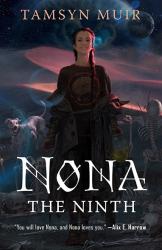
Nona the Ninth is the third book in the Locked Tomb series. It was an unprecedented addition, as the series was originally meant to be a trilogy that would end with Alecto the Ninth. And after reading this book, I couldn't imagine the series any other way. This book takes a step away from our principle protagonists and inter-planetary conflict to zoom in on Nona, a young woman who has technically only been alive for six months. She is a great teacher's aid, a fantastic dog watcher, and a caring friend. As her city crumbles around her and the secrets of her origin begin to come to light, Nona must keep trust in herself and the people she loves if she hopes to make it to her birthday.
I've seen a lot of reviews comparing this book to the first two in the series. In my opinion, there is no comparison to be made between any of them. The first is a thriller mystery in a nightmare castle with newfound friends. The second is a psychological horror story that occasionally becomes a soap opera. The third is slice of life, and the most heartbreaking of all three. I agree fully with the choice to make this a separate book, instead of trying to cram this into a climactic series ending. The series needed time to breathe from the revelations and consequences of the first two books, and to develop many of the wonderful side characters. On this note, the side characters in this book ruined me. They are constantly hilarious. They are perpetually heartbreaking. They have so much love for each other and it tears me apart. They are also fantastically developed, to the point where the thought of losing any of them almost stopped me from finishing the book. A large part of what made them special was seeing them through Nona's eyes, which was a fantastic combination of naively loving and strangely perceptive. Speaking of which, Nona's perspective was a special treat. Throughout the series, the author usually increases tension and intrigue by seriously limiting someone’s perspective. Previously this had been by outside parties hiding information or the unreliability of the narrator, but Nona being a mental six-month-old was a special treat. She attempts to relay everything with accuracy, but with limited experience and vocabulary the audience is forced to experience everything with fresh eyes to try to see it for what it is. Beyond all this, the story shined in all the usual departments for this series. The humor was exceptional, probably the funniest the series has been since the beginning of Gideon the Ninth. I particularly enjoyed the dream sequence narrations, as they were beautiful, insightful, and insanely funny. Sometimes I feel like Muir makes nearly every one of her characters funny so they can rip your heart out later with a little extra oomph. The worldbuilding continues to be a harrowing endeavor in the best way, as you have to take the time to figure it out for yourself with what little glimpses the book gives you. The only complaint I feel like someone could make about this book is that the pacing was pretty slow in the beginning to establish the ensemble cast, but I loved every minute of it so I can’t complain.
In conclusion, this book is another triumph for the Locked Tomb trilogy, and I can’t wait to see what comes next! I’d recommend this book to anyone who loves found family, slice of life stories, lots of explosions, zombie princes, and dogs with too many legs!
Reviewer Grade: 12
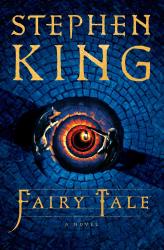
The Lord of The Rings, Harry Potter, Hobbit and The Chronicles of Narnia have already won the hearts of millions of readers of all ages. Fantasy novels with complex plots, written in the understandable even for the youngest readers language, keep older generations excited and thrilled as well. The Fairy Tale by Stephen King can definitely be included in this honorable list. Describing the incredible adventures of Charlie Reade, it takes us to the mystical world and introduces to the ancient evil monsters and brave fighters for freedom.
Everything starts simple enough. The characters are living their ordinary enough lives and dealing with their down-to-earth duties and routines. But everything changes when a 17-year-old Charlie Reade decides to help his old grumpy neighbor. He discovers the door to the hidden world, where life is paralyzed by a curse that erases people’s faces and takes their sensations away from them. An evil tyrant Flight Killer and is the one who stands behind it. And, as it normally happens in fairy tales, Charlie turns out to be the one, whose mission is to defeat the evil, liberate the city of Lilimar and save the fallen princess. Is it truly up to a high-schooler to beat the powerful monster? And what does it have to do with an old ill German shepherd? The Fairy Tale has the answers for all these questions.
The audience gets a chance to dive into the exciting and cozy atmosphere of the good old stories, heard in childhood, and, at the same time, enjoy the complicity of created by King universe and charm of human feelings and behaviors. Classical fairy tale plot and motives make the novel easy and pleasant to read, however, as any fairy tale, it contains hidden moral and promotes eternal values.
Reviewer Grade: 12
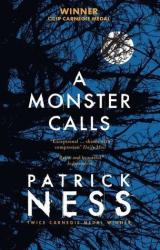
A Monster Calls is excellent for what it does. A young boy battles with his feelings over his sick and dying mother. He is haunted by a certain horrible nightmare. A monster outside his window causes havoc on various levels to evoke his true thoughts. He isn't afraid of anything, because nothing is scarier than his nightmare. The story reads similarly to a fable in that it weaves itself perfectly neatly. There are no subplots, extra characters, or excess in this novel. Instead, it marches on to the structure that one would expect, in three acts, each with appropriate escalation. The structure of this novel was refreshingly minimalist, and it helps highlight Conor's strengths and flaws in a powerful way. A Monster Calls is a short read, but it is heartbreaking and beautifully done.
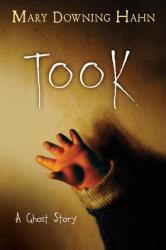
Daniel, the main character of the novel ‘Took’ is struggling with family issues, but then his sister, Erica, is taken from plain sight. It can’t be the woods where the witch lives, so what happened to Erica? The book is about Daniel uncovering new clues and going through twists and turns to find his little sister.
I absolutely loved this book! I’ve read it at least three times and it never gets old. I can appreciate everything about this book from the detailed scenes to the simple, but chilling artwork on the front cover.
Reviewer Grade: 8
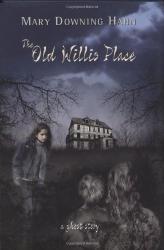
This ghost story revolves around a pair of siblings, the older sister named Diana and the younger brother named Georgie. The strange thing about these two is they don’t have any parents or legal guardian looking after them. It has always been Diana and Georgie on the Willis Farm. The two have a strict set of rules to follow which may lead to consequences if they break.
I really enjoyed this book. It was really an attention grabber and I was extremely interested in the plot because I haven’t read anything like it so far. Diana and her little brother Georgie are really complex characters and their relationship is interesting to follow throughout the entire book. This book is another ghost story from Mary Downing Hahn. If you have any free time, I recommend picking up the book and start reading!
Reviewer Grade: 8
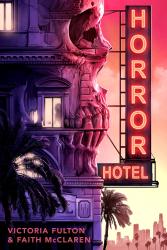
Have you ever read a book that’s so bad it’s good? Maybe even great? Even if you haven’t, there is room for one of these books in everyone’s lives. This book for me is Horror Hotel. Cringey, “Gen Z” dialogue? Horror Hotel has it. Badly written plot with an obvious twist? You can find that in Horror Hotel. One dimensional characters? You guessed it, Horror Hotel. Though, I will give this book credit where it’s due. I had found myself laughing harder than I’ve ever had at a book. It has the exact same energy of something you’d write with your friends at 3 AM. If you are looking for grade-A trash, you’ll definitely find it in Horror Hotel.
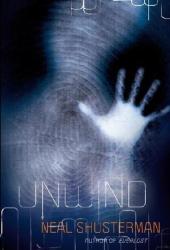
Unwind has a fresh, fascinating, and frankly genius premise: after a war is fought on abortion, the U.S. government passes legislature allowing parents to sign an order to "unwind" their teenagers. The teen is then taken apart, and each body part is used for transplants. Like any good dystopia, the concept poses a number of thought-provoking questions that the book tries to address, like "do we have souls?" or "what makes a person themself?" or "how scary is it to be unwound, really?", and it answers them with varying degrees of success. Unwind is an excellent conversation starter; it is riddled with nuanced philosophical ideas which are, at times, uniquely terrifying. However, that's where the problems with Unwind lie: the intrigue doesn't stretch much farther than the initial concepts. Shusterman is talented at worldbuilding, and every new detail of Unwind's dystopia is interesting, inspired, absurd, and simultaneously realistic. Unfortunately, the story fails to make use of this inherent intrigue. Much of the reader's time is spent spectating characters as they shuttle from one location to another. They have minimal development, or, when they do have development, it is sudden and drastic. Shusterman builds a vivid universe only to guide readers through the dullest corners. Unwind is worth a read for the conversation, not the story. If a reader expects the average teenage dystopia, they should pick another book; but if they want fresh perspectives, creative horror, and possibly a hint of existential dread, Unwind is the perfect read.
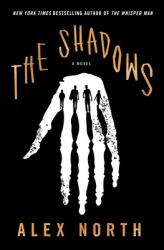
The Shadows by Alex North is about a brutal crime that rocks a small town, and haunts the ones closest to it. Paul grew up alongside three boys, two of which would later murder one of their fellow students. Twenty-five years later, Paul returns to the town to visit his dying mother and is forced to uncover deeply-hidden secrets about the murder when new crimes start to happen. I liked how each chapter revealed new clues and the final result was difficult to guess. There were several plot twists that felt well-calculated. For as exciting as the plot was, Paul was a very bland main character. The way he described his childhood with the future murderers was boring, and I didn't like the lucid dreaming theme. It seemed like the author was going for a strange cult theme, but it was muddled with the constant flashbacks to present-day. It was a good read for the Halloween season, but not my favorite otherwise.
Grade 12
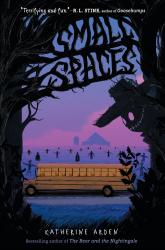
The book is about a book loving kid named Ollie who after coming home from school sees a woman trying to throw a book into water. Ollie of course takes the book away from her and got a warning. The book Ollie got slowly connects to the farm she's visiting for a field trip. After the trip the bus breaks down and they find themselves listening to the bus driver and leaving into the fog. Which led them to a creepy place where scarecrows roam around at the night. Overall I loved to see the book slowly connect as the pieces began making sense. You get to see the characters grow emotionally and begin to understand each other. The eerie feeling of the book fits and the ending makes it feel like it's gone back to this small town and nothing ever happened.
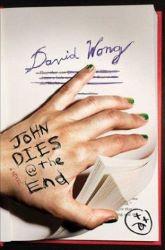
John Dies at the End is a story on two levels. On hand hand, it's a poignant exploration of the darkness of humanity, the fear of the unknown, the tragedies of life, and the devastating realities we exist besides everyday. But also, it's about two idiots on a space drug and their strangely resilient dog.
This book should be the blueprint for every dark comedy. It isn't a needlessly tragic story with a few laughs thrown in or a joke fest that undercuts every poignant moment. It blends comedy and tragedy seamlessly, balances it perfectly, and hits it for a home run with meticulous writing and characters. This is mostly done by finding the hilarity in tragedy, specifically the tragedy of life. This book is strangely and wonderfully existential for being mostly about shadows and movie monsters, a very classic demons of a character mirrored by demons of the world. The characters in general are stellar, with so many flaws and so much cynicism but with some shining nuggets of morality and love that makes them very easy to root for.
The entire thing is a joke that takes itself seriously in the best way possible. There are horrible moments of death and gore and dehumanization, and I would definitely look up some content warnings, but it's still such a fun ride. One minute there's gruesome character deaths and existential dread and body horror and such, the next minute one of the characters need to just kill the alien larvae quickly to get to work on time. Or their dog explodes and shows up like two days later and they don't care enough to investigate that. It's a rollercoaster of mood swings, but in a good way.
All in all, I don't know how to describe this book without using far too many words. Basically, despite some anticlimactic moments and weaker plot structure, this is a perfect dark comedy. I'd recommend this to any fans of horror, humor, existential dread, nihilistic humor, and well-written alien drugs!
Reviewer Grade: 12
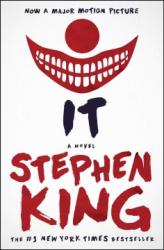
Despite the high page count, I've been looking to reread It by Stephen King for some time. It was a great book; it just took some time to get through. Seven friends all team up to fight an other-worldly murderous clown after several people turn up dead in the small town of Derry. This clown feasts on your worst thoughts and fears, and destroys your mind as well as your body. The switch between the seven friends as kids versus adults was entertaining, because they handled emergency situations differently as well as having different motives because of how the clown affected their childhoods. The chapters could get tedious at times and have a lot of fluff (in a horror book? YES!). I would even call the last hundred or so pages strange as the final battle became sort of biblical and unlike the direction of the rest of the book. Still, if you're a fast reader and would like to get a horror book under your belt, try it out!
Grade 12
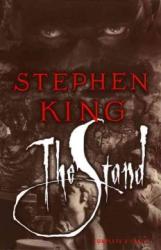
The Stand by Stephen King is uniquely a classic tale of good and evil facing off. This novel follows sundry people in a world after the deadly flu, which kills most of the population. While the remaining population is drawn to two people, one represents evil and the other good. The question that readers will be left with is: who will win? This question remains as various characters are introduced who are relatable and could pass for real people. The characters face many challenges, romance, action, adventure, and so much more. The ending to this stunning book could not be predicted and will keep any reader guessing. As with any Stephen King book, the writing style is distinct and will not be boring throughout the novel. It is a peephole to 1978 with vocabulary and culture. The Stand will not disappoint anyone willing to take on the challenge of a long, complex book. Overall I would give it a five out of five stars.
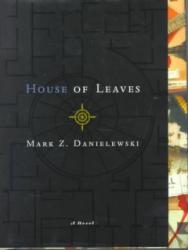
House of Leaves is a story within a story within a story. In short, it is a collection of writings, put together by an amateur tattoo artist after retrieving the notes from a dead blind man's apartment, notes about a documentary that may or may not have existed, a documentary that details one family and their house that is far bigger on the inside than it is on the outside. It is a desperate mess, a mile-high pile of unreliable narrators' unreliable writings collapsing in on themselves. It is a horror, not about a haunted house or a monster in the dark, but about the things that haunt us and the monsters inside our minds. It is a book that pushes the idea of what a book can be. It is gibberish, illegible, unreadable. And it is one of the most gripping books I have ever read.
I was glued to this book when I got it. It was one of the first real horror books I have ever read, and yet it betrays every idea of what horror should be. It is long and rambling and pretentious, going off on random tangents and strange digressions at the drop of a hat, but it still made my skin crawl. After I first bought the book, I quickly realized that I could not read it when my parents weren't home. It's something about the abruptness of horror after so long without it, or maybe its the unsettling words before that put you in the headspace where every shadow looks like a death omen. It's likely also something about the way the book chooses to directly address the root of all fears. It isn't about a house invasion, it's about the primal fear that comes when the comforting becomes unsafe. It isn't about surviving in a dangerous or extreme environment, it's about the bone deep terror of being somewhere you don't belong. It isn't about a monster, it's about the monstrous things this world has to offer, and how that monstrosity can creep into our very bones. This can be seen in the way the horror of the book is never named or explained. There is no ritual or legend, no handy expert or trusty guide. Even if a character manages to escape the horror, the horror still exists, because it has always existed.
Despite the beautiful prose, rich imagery, and startling effect this book creates, there are definitely some problems. The main issue is the inherently illogical structure and plot of the novel. This is obviously intentional on the authors part, since the book, and its characters, are meant to be a challenge to understand. The book is filled with rambling, nonsensical footnotes that can take up pages at a time. Words will go in different directions, appendices will stretch on for hours, entire chapters will be devoted to academic nothingness. This strangeness also weaves its way into the plot. While the documentary's story is mostly straightforward (although it, too, dissolves near the end) the ramblings of the amateur tattoo artist bringing the story together are crude, strange, abrupt, and often incomprehensible. There is a lack of catharsis, of any sort of understanding of most of the characters, and this can be very confusing and frustrating.
All in all, this book was a difficult yet rewarding read. I'd definitely recommend it for older readers, and would instruct any attempting to read it to get the physical version, read however feels comfortable, and go to the appendices when directed. I'd also recommend it for any lovers of horror, mystery, or a story in unique format.
Reviewer Grade: 12
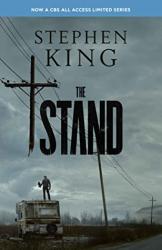
One of King's earliest and critically acclaimed books, a superflu ravages the planet, leaving a minuscule remainder of the population to pick between two opposing factions.
This book was a lengthy trip to follow, but it was pretty good. The characters were my favorite part of the story, as most of them were nuanced and developed. Seeing them interact with each other and/or their environment really pulled me in. The story, overall, was also good, but there were spots that didn't bring me the same enjoyment. The ending was anti-climatic and seemed forced, and it didn't flow with the setup before hand. Speaking of flow, the story was very slow. Characters acted and did things, but they also didn't. After the beginning, nothing really happened conflict wise. It all seemed like set up without much driving force aside from the attraction to the two fractions. In context with the story, it makes sense, but it still seemed boring at points where characters either weren't developing or were just there for a purely plot reason. Still recommend a read (especially with how it connects with his other works), but not the best I've read.
Reviewer's Grade: 11
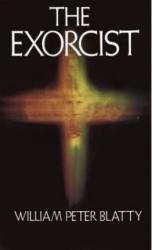
The source material for the iconic film of the same name, The Exorcist is a about a young girl and what resides within her.
You follow Chris and her 12 year old daughter, Regan, as Regan's behavior begins to change and morph until she becomes unrecognizable to those around her. As her condition worsens, new characters fall under your eye: Klein, Father Karras, Kinderman, and more, all with their own involvement with Regan, Chris, and the events around them.
I enjoyed the book, though I thought the begin was a bit slow, personally. I enjoyed the book, but it wasn't a four star book for me. I would give it a read, especially if you have seen the movie (I haven't seen it, but I digress). It is a bid crude in a couple of places, so if disturbing descriptions make you uncomfortable or something similar, prepare or shy away from this one.
Horror readers and newcomers, enjoy!
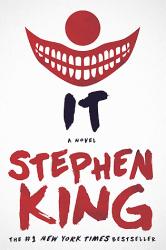
If you love a nice touch of supernatural horror in your life, you have to check out IT by Stephen King. Follow the story of young Bill Denbrough as he tries to discover what happened to his younger brother, Georgie, after his disappearance with his friends: Richie Tozier, Stanley Uris, Eddie Kaspbrak, Beverly Marsh, Mike Hanlon, and Ben Hanscom, while discovering a much darker secret under Derry, Maine. This book has everything you could possibly ask for in a horror novel with a strong bond of characters, a very unique villain, and enough variety that leaves you loving both the teenage and adult perspectives of the story. I love the concept of seeing both a child and adult perspective of the novel, it is a very unique concept, worth the 1000 pages. However, it only gets 4 stars in my book due to the constantly changing perspectives that seem to jump back and forth along with many questionable moments throughout the book. However, if you are looking for a book that will keep you reading for a while and love horror, It is the book for you.
Reviewer Grade: 12
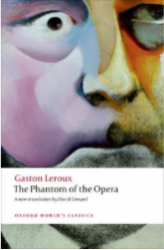
The Phantom of Opera by Gaston Leroux is actually a simple classic novel that is really beautiful yet an extremely compelling story in itself. As the very name suggests the book is about a Parisian Opera (Opera in Paris), that is apparently Haunted by an alluring and a mysterious Phantom.
The worst part is that the Phantom eventually falls in love with a soprano Christine Daaè which in the end causes a lot of trouble for the Parisian Opera House.
Anyhow let's get back to this book review. Though the story is actually all about romance and mystery it is also full of obsession and suspense. The book is a classic literature and a bit Broadway musical genre, it is perhaps not bad to say that the book is filled with a lot of suspense and almost an indefinite thought provoking moments that some would find very interesting, when some would find it awkward.
Even though the story itself does go deep into the Christine's childhood and the Phantoms backstory what we really enjoyed is the psychological aspect and angle of it. So, a lot of thrilling moments that will literally nail you to your stool or a bed while you read it.
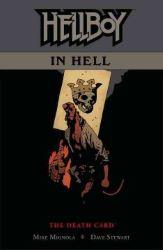
The Death Card concludes the solo storyline of Mike Mignola's Hellboy. In The Death Card, Hellboy begins to discover the consequences of his actions in The Descent, and sees hope for a new, restored world. He also seems to fully grasp the power of his Right Hand of Doom and... well, I shouldn't tell you too much. But you can know that this is the end, the great conclusion, written and drawn by Mignola. And on that note: Mignola's art here is as good as ever. The scene with... well, I still can't tell you too much, but there's a part that's actually painted. The art is is great. And the writing is good as well. Hellboy in Hell: The Death Card delivers a satisfying end to the tale of Hellboy.
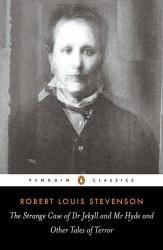
The Strange Case of Dr. Jekyll and Mr. Hyde by Robert Lewis Stevenson is a novel about a scientist in London, Dr. Jekyll, that has the misfortune of having to control and mask his alter identity, Mr. Hyde. After some unfortunate events partake, others begin to realize that the wise Dr. Jekyll has an alter identity. This novel has an unpredictable ending that left me stunned. I thought that the book was really good due to the continuously moving plot and the amazing characters that create a wonderous mystery throughout the book. I was required to read this book for school and I would definitely recommend it for readers that are in middle school and beyond that enjoy a great science fiction or mystery novel. Reviewer Grade: 9

The Strange Case of Dr. Jekyll and Mr. Hyde by Robert Louis Stevenson is a novel about a scientist in London, Dr. Jekyll, who struggles with controlling his alter ego, Mr. Hyde. As he attempts to mask his other personality, horrifying events occur that present the horrible personality of Mr. Hyde. Other citizens begin to discover the connection between Dr. Jekyll and Mr. Hyde as the novel finishes with a jaw dropping climax and resolution. I was required to read this book for school and I would recommend it for readers middle school and above. I really enjoyed the progression of the plot and the ending that was unpredictable. Reviewer Grade: 9